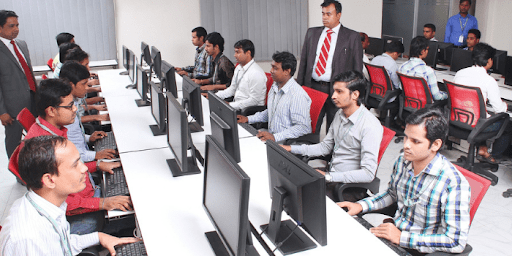
How to Make a Career Choice When You Are Undecided
Choosing a great career is harder than having a great career.
When you make a plan to travel to an unknown destination, what do you do at first?
You search for the place on the map to find the way out, you search which road will be easier, quicker & preferable to choose. In a nutshell, you consider the factors & choose the best one to reach your destination, & once you get started on that road, the rest gets easy.
When you can go through so many steps just for the sake of reducing further turmoils from your tour, then why not for your career?
Here are the 8 factors you should always consider, for choosing the best-suited career for you.
8 factors to consider while choosing your best-suited career
i) Field of interest
You can’t sustain in any job if you do not have an interest or passion for it. Though there are many factors you need to consider while choosing your career, among them all, love for the career you are choosing should be at the top of your priority list.
You need to feel “I love what I am doing”.
So your first step should be to list down 5 things that you love doing or have an interest and passion for.
ii) Skills you won
Yes, love and passion for the career should always be prioritized, but the requirement for the skillset to pursue the particular passion, can’t be neglected.
You might have a love for songs and music, but to move forward with that career, you need to be able to sing well too.
& that’s where the next step comes…
You might have already listed the things you have an interest in, now on a separate column, list the top 5 skills you have.
Now try to match your existing skill-set with the skills required for the things you love.
Matching found?
Put green ticks beside those careers.

iii) Demand in the market
You have a great skill, and have passion for it, but what if the market does not need it?
The job market plays a crucial role in the career deciding phase of a student’s life.
There was a time when the demand for electrical engineers suddenly dropped a lot in India. No company was offering campus recruitment. The students who took admission to study electrical engineering became jobless later after passing out.
But most of them might have taken admission because they had the passion for it, and the desire to learn the skill.
Then why did they fail?
Because of the market demand, the job market.
That’s why while choosing a career, always do market research for your preferable career options.
iv) Preferability based on affordability, location, institution availability
You should not jump on a decision before considering other aspects.
What if you decided to pursue a particular career, and then you discover that it’s beyond your budget?
To avoid such turmoils, consider these 3 factors –
- Whether the budget of pursuing this career matches your affordability or not.
- Destinations this career requires you to move out to, match your location preferability list or not.
- Whether this career will offer you your preferred institutions or not.
v) Comparison between your expected salary and the existing salary
You might have an expected salary for your aspiring careers. But all of the aspiring careers’ existing salaries won’t match that.
And here another differentiating bar arrives.
Set an expected salary range in your mind, & search for the careers in your list which provide salaries in that range.
Now if you find that your existing skillset, passion match multiple career options, then obviously go for the one which provides a better salary package.
This is how you will be moving forward on your way of choosing the best career for you, without negotiating neither your love & passion nor your monetary expectation.
vi) Upskilling scope
Upskilling means improving the existing skillset.
Now you need to decide whether you want to enjoy being where you are and make yourself comfortable with the present or enjoy stepping outside your comfort zone.
To be comfortable with being uncomfortable gives the scope to upskilling.
There are many careers which will make you get stuck at the same position for years, & on the other side, there are careers which will celebrate your upskilling & promote you to a better position.
In another view, the first ones give you stability, & the scope to breathe, while the second one offers instability (you might not cope up with the new position and responsibilities) & makes you run continuously towards “more”.
Visualize yourself in both positions. Every aspect has its pros and cons. You need to decide which one you would enjoy more.
vii) Job security
One of the most vital points to consider is ‘job security’ when it comes to making career decisions.
There might be great and aspiring job opportunities that are temporary, & also, not up-to-the-mark job scopes offering permanent job security.
The ultimate choice should be yours.
Many people prefer temporary high-salaried aspiring job opportunities while getting a certain amount each month, no matter it’s less or much, gives another level of peace & security to many people.

viii) Current Employees’ opinions
No one can give you the accurate information. That’s why, when you have done the maximum research for any particular career, make sure you connect with the ones pursuing their education in that career or doing jobs there. Because they will be able to provide you the raw information, make you learn the pros & cons, & most importantly will share the mistakes they did, which will help you not to repeat those mistakes further.
Internet might help you to know the primary details but connections will inform you about the ground state.
Conclusion
Making a career decision is not at all easy. But it’s worth the hard work. Your intuitions, capabilities are the vital ones in your way of making a worthy decision. Don’t rush, take everything slowly, have patience and consider all aspects before making any decision.
Also See:
- Career Options after Graduation, Choose your pick
- Career in Chartered Accountancy
- Career in Massage Therapy
- Career Preparation And Planning – Self Analysis
- Career options other than Engineering and Medical after Class 12